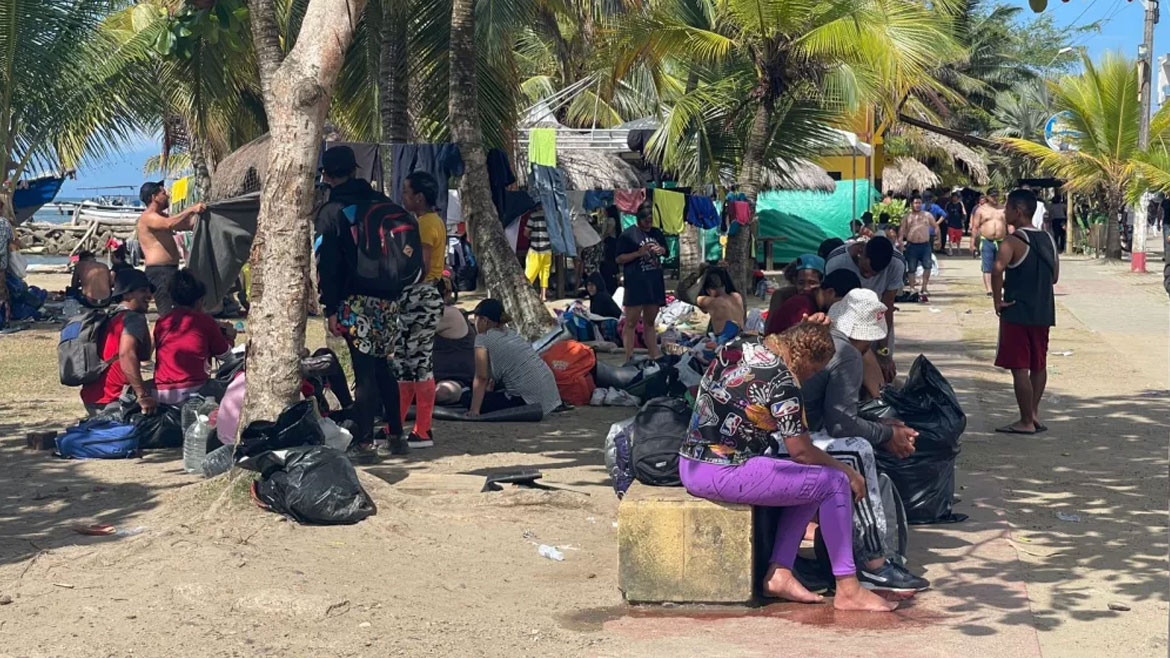Local authorities in northwest Colombia said that mass migration to Central America has caused a humanitarian crisis on border with Panama.
According to the ombudsman of Necocli, his town in the Uraba region has not been able to deal with a growing number of migrants trying to travel to Central America.
Necocli ombudsman Wilfredo Menco told local media that the mass migration has become untenable in his town, which officially has 70,000 inhabitants.
According to Menco, some 2,500 migrants cross the Gulf of Uraba to the jungles of the so-called Darien Gap on the Panamanian border every day.
The number of people stranded in Necocli has grown to more than 10,000 because the number of arriving migrants has outgrown the local transport capacity, said the human rights official.
At the moment we have an overcrowding crisis. There are many migrants with specific needs, they are not being given the necessary help and we have many travelers in very precarious conditions, many children with malnutrition problems. We have found children who are poorly cared for because they lack food, shelter, diapers, among other things.
Necocli ombudsman Wilfredo Menco
The United States’ Department of Homeland Security (DHS), which coordinates immigration, said Wednesday that more than 3,000 people travel through the Darien Gap every day.
The DHS said that the US Government is planning “to offer additional security assistance to support regional partners to address the migration challenges in the Darién Gap.”
The European Union’s humanitarian agency said Wednesday that it would increase humanitarian aid for Colombia with $33 million in order to address the crisis in Necocli and Acandi, the municipality on the other side of the Gulf of Uraba.
Colombia’s Inspector General’s Office urged the national government to improve coordination with authorities in Panama that would grant all migrants safe passage and reduce the crisis on the border.
More than 150,000 people have crossed the Panamanian border through the Darien Gap so far this year, according to Colombia’s national ombudsman’s Office.
This would be a major increase compared to the 134,000 people who made this perilous journey in all of 2021.
The most recent surge would be due to an increased number of Venezuelans trying to flee their country, which has been suffering a humanitarian and political crisis for more than five years.


